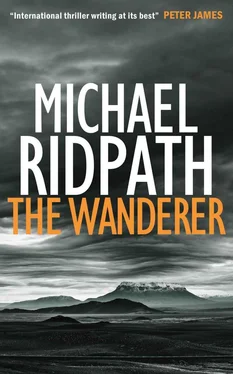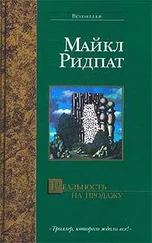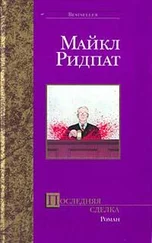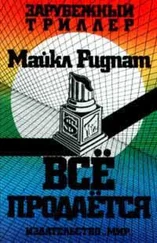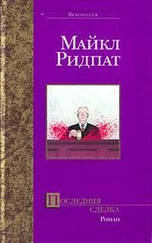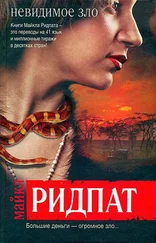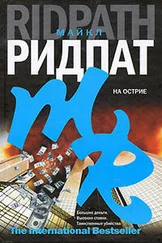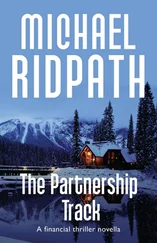Vigdís had to admit that sounded plausible.
‘You have to admit that sounds plausible,’ said Tryggvi Thór with a hint of a smile.
‘You would have died if that tourist hadn’t found you,’ said Vigdís.
The shadow of the smile dissolved. ‘I know. I was lucky.’
‘You might not be as lucky next time.’
Tryggvi Thór didn’t respond.
‘Magnús is concerned about you.’
‘Magnús should mind his own business. Now please leave.’
Vigdís sat there watching him.
A minute passed.
‘OK. If you’re not going to leave, tell me what it’s like being a black Icelander.’
Vigdís rolled her eyes. ‘You have got to be kidding! That’s none of your business.’
‘Neither is my head injury any of yours.’
‘It is my business if someone is trying to kill you,’ said Vigdís. ‘Actually, I don’t care too much about that, but I know Magnús does.’
‘Is he honest?’ Tryggvi Thór asked.
‘Of course he’s honest! He’s a policeman.’
Tryggvi Thór snorted. ‘I used to be a policeman. You and I know they are not all honest.’
‘Yes, you would know that since you got drummed out of the force for corruption.’
‘Well?’ said Tryggvi Thór.
Vigdís sighed. ‘Yes. Yes, Magnús is honest. Irritatingly, inflexibly honest.’
Tryggvi Thór smiled. ‘And you?’
Vigdís refused to respond to his smile, even though she wanted to. She nodded. ‘Yes. I’m honest too. Almost as bad as him.’
‘Good,’ said Tryggvi Thór. ‘I think I believe you.’
Vigdís snorted.
‘The reason I asked you what it was like being a black Icelander, Vigdís, is that my daughter is black. Very black: about the same shade as you.’
Vigdís knew from the reports on the earlier attack in Álftanes that Tryggvi Thór had returned from twenty years in Africa. She hadn’t read of a daughter.
‘What’s her name?’ she asked, in spite of herself.
‘Greta.’
‘And is she here in Iceland?’
‘She visits occasionally, but she is in medical school in Kampala. So. What’s it like?’
Vigdís sighed. Despite herself she was intrigued by a half-Icelandic, half-African woman whose father was a cop.
‘It’s crap, basically. I never met my dad: he was an American serviceman who left my mum before I was born. So I have been brought up entirely an Icelander. I’m just as much an Icelander as you: more in fact, because I have lived my whole life in this country.’
‘OK,’ said Tryggvi Thór. ‘So why is that crap?’
‘People don’t treat me like that. Icelandic people. I know we’re not supposed to be racist, but many of them can’t handle someone who is black and speaks Icelandic as well or better than them. They keep trying to speak to me in English. I don’t speak English.’
‘That’s a shame.’
‘And why is that?’
‘Because Greta barely speaks any Icelandic. I would like her to be Icelandic. Like you.’
‘What does her mother think about that?’
Tryggvi Thór’s face sagged. Vigdís knew she had made a mistake. ‘She’s dead, isn’t she?’ she said. ‘I’m sorry.’
Tryggvi Thór said nothing.
‘Next time Greta comes to Iceland, tell her to get in touch with me.’ Vigdís left her card on Tryggvi Thór’s table. ‘We’ll communicate by tribal dance.’
The white glare of the Greenland icecap emerged in the distance through Magnus’s aeroplane window. There were plenty of questions he needed to ask the TV crew in Greenland. What they knew about the hoax. Which of them had met Nancy Fishburn on Snaefellsnes. What their movements had been the morning Nancy had been killed.
But his first priority had to be Rósa, who was emerging as a prime suspect for Carlotta’s murder. The connection between Carlotta’s death and Nancy Fishburn’s was as yet unclear, but there would be one, and it would probably involve Rósa. Maybe she was covering for Einar? Magnus didn’t know.
He pulled out his notebook and jotted down notes for the interview. Rósa was a smart lawyer. Once she figured out she was a serious suspect for Carlotta’s murder, she would probably keep shtum. Magnus thought he could just about get away with interviewing her as a witness rather than a suspect, at least initially. It was an important distinction in Icelandic criminal law and one Rósa would be aware of. Magnus needed to tempt her to divulge as much information as possible before she realized that he knew she had lied to the police about her trip to London.
The plane descended over massive icebergs the size of ocean liners, reached the mountainous coastline and picked up the flow of a fat ribbon of glacier that darkened from white to grey and blue as it cracked and wrinkled in a frozen tumult of centuries-old ice the closer it came to the sea. The aircraft banked low around a cliff and into a long thin fjord with a drab plain bisected by a runway on one side and green hills on the other: the green of Brattahlíd, part of a narrow strip of vegetation clinging to the south-west edge of an enormous block of granite and ice.
Because of Greenland’s semi-autonomous status with Denmark, there was no immigration control for flights from Copenhagen in the small terminal, but two uniformed police officers, one male and one female, watched the arriving tourists and returning Greenlanders.
Magnus approached them and held out his hand. ‘Hi, I’m Magnus Jonson,’ he said in English, using the American version of his name. His father’s name was Ragnar Jónsson, which meant that in Iceland Magnus was known as Magnús Ragnarsson, but when he had arrived in America at the age of twelve, using his father’s last name had proved much easier all round.
‘Josepha Paulsen,’ said the female officer. ‘And this is Constable Jens Frandsen.’
Vigdís had been in touch with Inspector Paulsen, who was the police chief from Qaqortoq, the nearest big town further down the fjord towards the sea. Paulsen was Inuit, with wide, strong cheekbones and a firm mouth that broke into an unexpectedly sweet smile. Frandsen was twenty years younger than her, Danish, with fine blonde hair that was cut so short you could barely see it.
‘ Taler du dansk? ’ Paulsen asked. It was a fair question. Both Iceland and Greenland had been colonies of the Danish Crown, and until recently Danish had been compulsory in Icelandic schools. But there was also a linguistic dance when Icelanders and Danes met: the Icelanders preferring to speak English rather than be at a disadvantage in the colonial language.
Magnus had no choice. ‘I’m sorry. I left Iceland when I was twelve, so I never really learned Danish.’
‘That’s OK,’ Paulsen replied in heavily accented English. ‘Your colleague in Reykjavík said that you would prefer to approach Rósa Helgadóttir yourself, so we haven’t detained her. They are all filming at Brattahlíd on the other side of the fjord. We can take you there now.’
‘Great. Let’s go.’
There wasn’t much to Narsarsuaq. It was dominated by the airport, outside of which ran a long straight road which led to a cluster of large rectangular functional buildings: warehouses, sheds, small apartment blocks. Paulsen and Frandsen led Magnus over the road to a police car parked next to a little green hut bearing the word Politi. They sped down the straight road, scattering suitcase-dragging tourists from the Copenhagen flight, to its end at a small harbour of three or four jetties.
They dropped into a marked police speedboat, and soon they were zipping across the fjord, dodging sedate icebergs on their way. Frandsen was driving.
‘Can you give me some background on Rósa Helgadóttir?’ Paulsen asked.
Читать дальше
